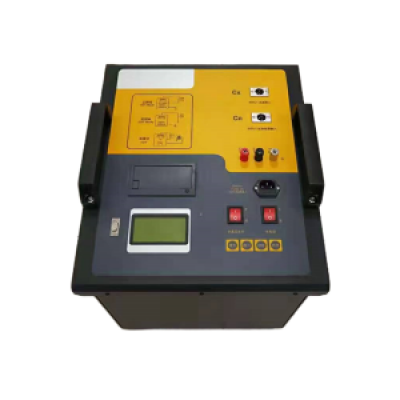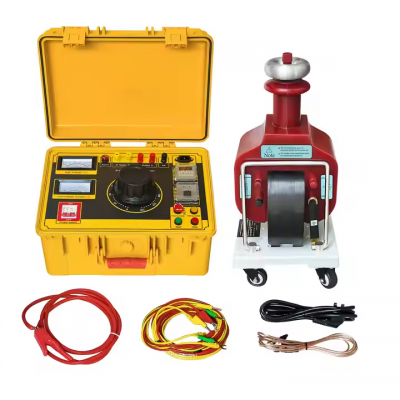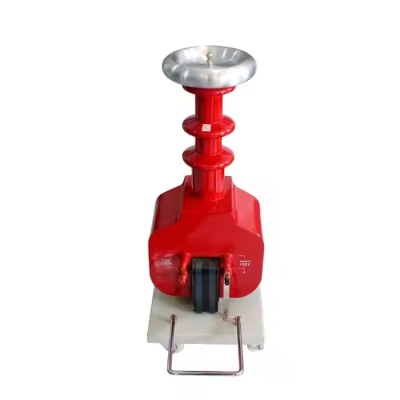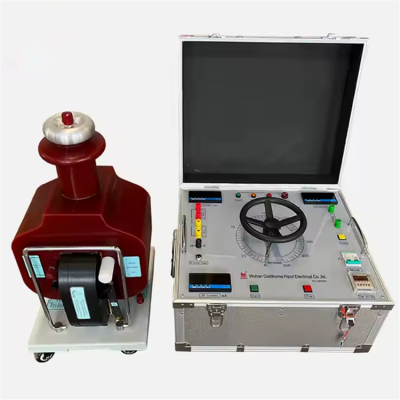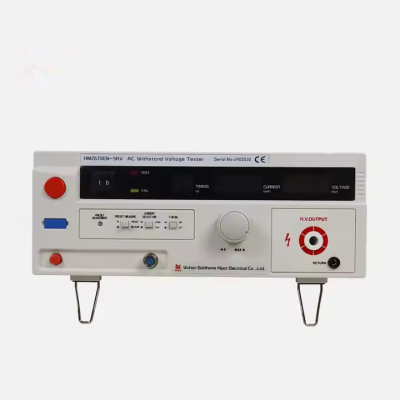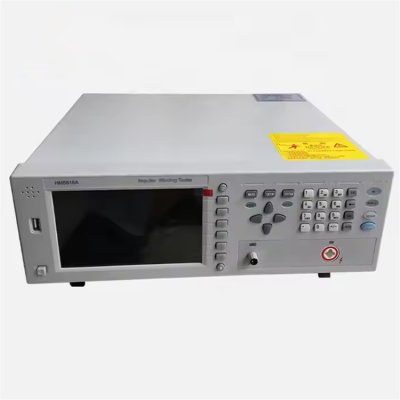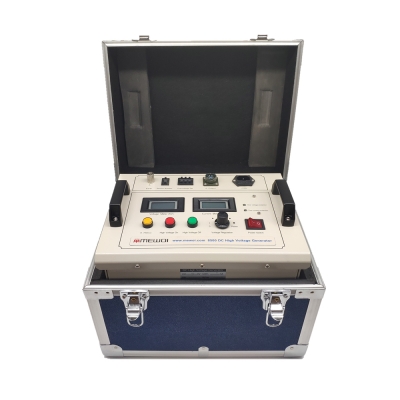| Contact Us for Quotation | Email:464560351@qq.com | Whatsapp: +8618620373879 |
INTRODUCTION
| Dielectric loss measurement is a basic method in insulation test and effectively detect damp, degradation and partial defect of insulation of electrical equipment. This method is widely used in electric manufacturing, electric equipment installation, connection and preventive test. Measurement on dielectric loss of transformer, mutual inductor, reactor, capacitor, bushing and arrester is the most basic method to test their insulation property.TKC fully-automatic anti-interference dielectric loss tester breaks through the traditional bridge testing method and adopts variable frequency power technology, single chip and modernized electrical technology to carry out automatic frequency shift, analog-to-digital conversion and data computing. It features strong anti-interference capacity, high test speed, high precision, automatic digitization and easy operation. It adopts high-power switching power supply, which outputs 45Hz and 55Hz pure sine wave and automatically increase the voltage to a maximum value 10 KV. It can filter 50Hz interference automatically, and it is applicable to the site test of substation and other places with large electromagnetic interference. This methods is extensively applied in dielectric loss measurement of transformer, mutual inductor, reactor, bushing, capacitor, arrester and other equipments in power industry |
PERFORMANCE FEATURES
1. The instrument adopts complex number current method to measure capacitance, dielectric loss and other parameters. The measured result is highly accurate and it is easy to realize automatic measurement. |
| 2. The instrument adopts variable frequency technology to eliminate 50Hz/60Hz power frequency interference. So a reliable data will be reachable even under the strong electromagnetic interference. |
3. The instrument adopts large screen LCD . In the process of testing, Chinese menu prompt is visualized and easy to operate. |
| 4. The instrument is easy to operate and the measuring process is controlled by microprocessor. Once a suitable measuring method is selected, the data measurement will complete automatically under the control of microprocessor. |
5. The instrument is designed to be an integrated model with reference capacitor and HV power supply in it, enables site test measurement and reduces site wiring. |
6. The instrument is equipped with CVT testing function, which can achieve CVT self-exciting testing without external accessories and measure the capacitance and dielectric loss of C1 and C2 by at a time. |
7. GST measurement adopts ivddv technology and avoids unstable data provided by previous GST measurement. |
8. The instrument provides low voltage shell function of GST. When the bus of 220kV CVT is grounded, dielectric loss measurement can be conducted for C11 without removing 10 kV GST. |
9. The instrument has a function of measuring high-voltage dielectric loss. It can carry out dielectric loss test with over 10kV with the help of voltage transformer or series resonance. |
10. The instrument has a ground-fault protection function. In case that the instrument is not grounded or grounded incorrectly, the instrument will refuse to enter in o normal procedure and output HV. As for the over-current protection function, it will protect the instrument from damage when the tested article is in a short circuit or breakdowns. |
11. The instrument has a function of electric shock protection. When the instrument operator suffers an electric shock due to incaution, the instrument will cut off the HV immediately and thus ensure the security of operator |
TECHNICAL SPECIFICATION
Accuracy | Cx: ±(reading×1%+1pF) |
tgδ | ±(reading×1%+0.00040) |
Anti-interference | Variable frequency anti-interference, the above accuracy can be reached under 200% interference. |
Capacitance range | Internal HV: 3pF~60000pF/12kV 60pF~1μF/0.5Kv External HV: 3pF~1.5μF/10kV 60pF~30μF/0.5kV Resolution: Maximum 0.001pF, 4 valid figures. |
tgδ range | Unlimited, 0.001% resolution, automatic identification for capacitance, inductance and resistance of three tested articles. |
Test current range | 10μA~5A |
Internal HV | Set voltage range: 0.5~12kV Maximum output current: 200mA Buck-bust method: continuous stepless regulation Test frequency: 45, 50, 55 single frequency 45/55Hz automatic dual variable frequency Frequency accuracy: ±0.01Hz |
External HV | In case of UST, maximum test current is 1A, and power frequency or variable frequency is 40-70Hz In case of GST, maximum test current is 10kV/1A, and power frequency or variable frequency is 40-70Hz |
CVT self-exciting low voltage output | Output voltage 3~50V, output current 3~30A |
Measuring duration | About 40s, depending on measuring method |
Input power supply | 180V~270VAC, 50Hz/60Hz±1%, supplied by alternating current or generator |
Computer interface | Standard RS232 interface |
Printer | WH-A7 mini-type thermal printer |
Environment temperature | -10℃~50℃ |
Relative humidity | <90% |
Overall dimension | 460×360×350mm |
Weight | 28kg |
Note:
| On-site transformer housing is generally grounded. When testing the tgδ(dielectric loss) of transformer, the reverse connection method is generally selected. Only for fully insulated transformer, the forward connection method is used to test. |
1F=1000mF=1000000000uF=1000000000000pF 1mF=100001F=1000uF=1000000000000pF 1uF=1000000000000pF 1uF=0.000001F |





















































































































































 English
English
